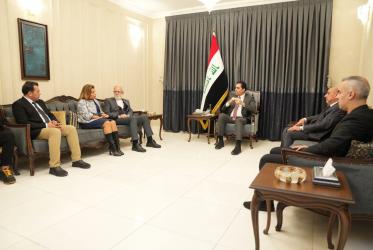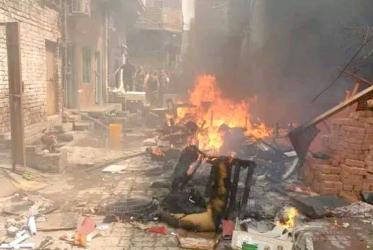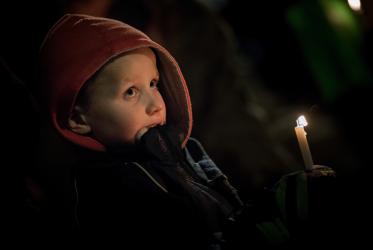Ten years ago, thousands of people from more than 90 countries were killed in a coordinated assault on targets in the United States of America. These events on 11 September 2001 and the consequences of what happened that day – including wars centred in Afghanistan and Iraq – deeply scarred the first decade of the 21st century and have left a legacy of pain, grief, disorder and enmity.
On behalf of the World Council of Churches, I write to assure all those who have been affected by violence and inhumanity – in the United States and throughout the world – of continuing prayer and solidarity on the part of the fellowship of churches we constitute. As a Norwegian who experienced tragedy within my own homeland this past summer, I appreciate the power and meaning to be found in supportive prayers and other expressions of compassion.
Terrorism in all its forms – whether committed by individuals, groups or states – is to be condemned. But one may reasonably ask how best to respond. Perpetrators should be brought to justice and security measures devised to prevent the repetition of such trauma. Many of us remain convinced that nonviolence can be the most helpful long-term response to violence and the most effective means toward a lasting peace based on justice.
We in the ecumenical movement have dedicated ourselves to dialogue among people of different faiths, and in this context especially to dialogue among Christians, Jews and Muslims. There is great power and importance in religion, yet on this anniversary we must admit that belief can be twisted and perverted to fuel hatred, terror and war. The World Council of Churches is preparing for its 10th Assembly in 2013 and has adopted an assembly theme in the form of a prayer: “God of life, lead us to justice and peace.” Life, justice and peace are high ideals in every religion deserving of the name, and we appeal to religious leaders and people of goodwill to join us in building strong relationships based on human dignity and mutual respect.
In October 2001, the World Council of Churches commissioned an ecumenical “Living Letters” team to visit the United States and help to comfort its grieving people. At the conclusion of this visit, the team spoke in a pastoral letter of building “a culture of peace”. On this anniversary we re-dedicate ourselves to dialogue and cooperation in search of Just Peace. Establishing peace is the surest path to true victory over those who on 11 September, 2001 sought to inaugurate an era of division and death. Together, let us proclaim that their aims have been rejected.
As Jesus taught, “Blessed are those who mourn, for they will be comforted” ... and, “Blessed are the peacemakers, for they will be called children of God.”
God of life, lead us to justice and peace! Amen.
Rev. Dr Olav Fykse Tveit
General secretary
World Council of Churches



